The shipping industry plays a pivotal role in facilitating international trade, and the route from China to Iraq is no exception. As one of the most dynamic and rapidly growing regions in the world, the trade relationship between China and Iraq has become increasingly significant, driven by mutual interests in economic development and infrastructure investment. This comprehensive guide explores various aspects of shipping from China to Iraq, from understanding the role of shipping agents to navigating the complexities of documentation and customs procedures.

Whether you are a seasoned importer or new to the world of international trade, this guide aims to equip you with the knowledge you need to successfully navigate the shipping process from China to Iraq, ensuring efficient and reliable delivery of goods.
Role of Shipping Agents
Shipping agents play a crucial role in the logistics and transportation industry. They act as intermediaries between shippers and carriers, facilitating the movement of goods across borders. From managing documentation to coordinating the logistics involved in transporting cargo, shipping agents ensure that shipments are handled efficiently and comply with international trade regulations.
The primary responsibilities of shipping agents include:
- Coordination of Shipments: They oversee the entire process from the point of origin to the destination, ensuring that all logistical aspects are in order.
- Customs Clearance: Shipping agents handle necessary customs documentation and facilitate the clearance process, which is vital for the smooth transition of goods across borders.
- Freight Booking: They secure space on carriers, whether for ocean freight, air freight, or other transportation modes, ensuring timely delivery.
- Cargo Insurance: Many shipping agents offer insurance services to protect cargo against potential risks during transit.
- Consultation: They provide valuable advice on the best shipping options, routes, and regulations, helping businesses make informed decisions.
Benefits of Using a Shipping Agent
Utilizing a shipping agent offers several advantages for businesses importing goods from China to Iraq:
- Expertise and Knowledge: Shipping agents possess in-depth knowledge of international shipping regulations, customs procedures, and local market conditions. This expertise minimizes the risk of errors or delays.
- Cost-Effective Solutions: By leveraging their network and negotiating power, shipping agents can often secure better rates for shipping services, including Ocean Freight.
- Time-Saving: Handling logistics can be time-consuming. Shipping agents streamline the process, allowing businesses to focus on core operations while ensuring timely deliveries.
- Risk Management: They help mitigate risks associated with shipping, such as delays or customs issues, providing peace of mind for importers.
- Comprehensive Services: Many shipping agents, like Dantful International Logistics, offer a one-stop solution for all shipping needs, integrating services like warehouse management, customs clearance, and cargo insurance.
Shipping Options from China to Iraq
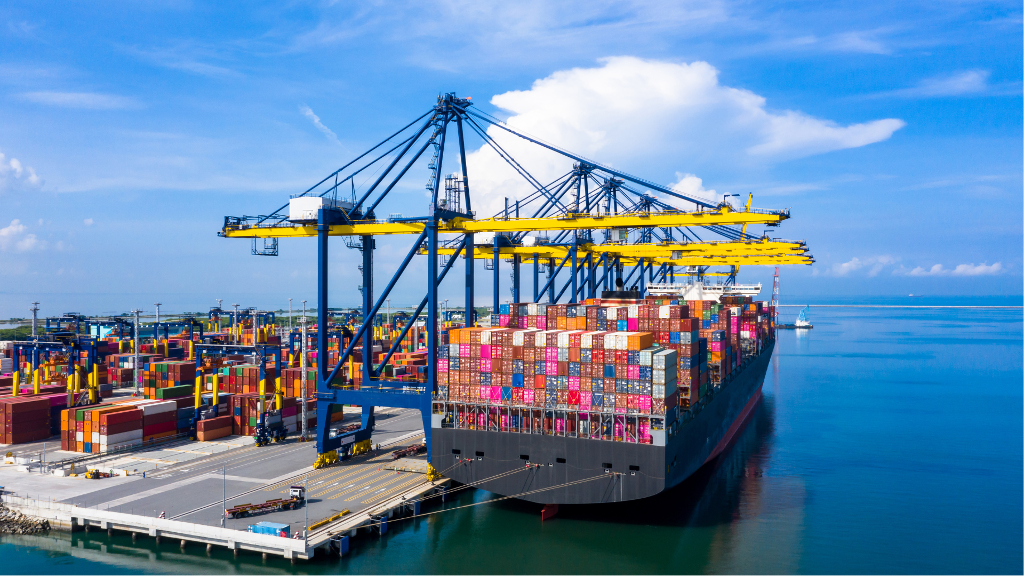
When considering shipping options from China to Iraq, businesses have several choices, each with its distinct advantages and considerations.
Sea Freight
Sea freight is one of the most cost-effective methods for transporting large quantities of goods over long distances. Two primary types of sea freight options are:
- FCL (Full Container Load): This option is ideal for businesses shipping large volumes of goods. An entire container is used for a single shipment, which is often more economical and secure.
- LCL (Less than Container Load): For those with smaller shipments, LCL allows multiple shippers to share a container. This option is cost-effective, but it may involve longer transit times due to consolidation and deconsolidation processes.
Air Freight
Air freight is the fastest shipping method available, suitable for high-value or time-sensitive goods. While typically more expensive than sea freight, it can significantly reduce delivery times, making it ideal for urgent shipments.
Express Courier Services
For small packages or documents, express courier services provide rapid delivery options. These services are characterized by speed and reliability, often offering tracking capabilities to ensure transparency throughout the shipping process.
Multimodal Transportation
Multimodal transportation combines different modes of transport (e.g., sea and air) to optimize efficiency and cost. This approach can be particularly beneficial for businesses that need flexibility in their shipping schedules and want to balance cost with delivery speed.
For a comprehensive and professional solution, consider partnering with Dantful International Logistics, which provides a highly professional, cost-effective, and high-quality one-stop international logistics service tailored for global traders.
Shipping From China to Middle East Countries:
- Shipping from China to Saudi Arabia
- Shipping from China to UAE
- Shipping from china to KUWAIT
- Shipping From China To EGYPT
- Shipping from China to Bahrain
- Shipping From China To Jordan
- Shipping From China To Israel
- Shipping from China to Qatar
- Shipping From China To IRAQ
- Shipping from China to Iran
Key Considerations When Choosing a Shipping Agent
Selecting the right shipping agent is a critical decision that can significantly impact your logistics efficiency and overall business success. Here are key considerations to keep in mind when choosing a shipping agent for your operations:
Experience and Expertise
The experience and expertise of a shipping agent can determine the quality of service you receive. An experienced agent will have a thorough understanding of international shipping regulations, customs requirements, and the intricacies involved in transporting goods across borders. They should have a proven track record of handling shipments to Iraq, ensuring they can navigate potential challenges effectively. Look for agents who specialize in your specific industry or type of cargo, as their insights can provide valuable advantages.
Network and Partnerships
A robust network of partnerships is essential for a shipping agent to provide competitive rates and reliable services. Agents with established relationships with carriers, freight forwarders, and customs authorities can often secure better shipping options and faster transit times. In particular, working with a shipping agent like Dantful International Logistics, which has a comprehensive global network, can help streamline your logistics and provide access to various transport options, including Ocean Freight and air freight services.
Service Offerings
Different shipping agents offer various services that cater to diverse shipping needs. When evaluating potential agents, consider whether they provide services that match your requirements, such as:
- Customs Clearance: Efficient handling of customs documentation can prevent delays in delivery.
- Warehouse Services: Access to secure storage options can be advantageous for businesses needing to hold inventory before distribution.
- Cargo Insurance: Protecting your shipments from unforeseen risks is vital, and a shipping agent should offer comprehensive insurance options.
- Multimodal Transportation: The ability to combine different transport modes can enhance flexibility and cost-effectiveness.
Pricing and Cost Transparency
Pricing is a crucial factor when selecting a shipping agent. It’s essential to understand the cost structure, including base rates, fuel surcharges, and any additional fees that may apply. A reputable shipping agent should provide transparent pricing and clearly outline all potential charges upfront. This approach allows you to make informed decisions and compare costs effectively. Dantful International Logistics is known for providing cost-effective solutions with transparent pricing, ensuring clients get the best value for their logistics needs.
Customer Support and Communication
Effective communication and support are vital in the logistics industry. Choose a shipping agent that prioritizes customer service and maintains clear lines of communication throughout the shipping process. This includes timely updates on shipment status, responsiveness to inquiries, and willingness to provide guidance in case of issues. Having a reliable point of contact can significantly enhance your overall shipping experience and reduce anxiety associated with international logistics.
Major Ports and Routes
Understanding the major ports and common shipping routes between China and Iraq is essential for efficient logistics planning. Here’s a breakdown of significant ports and routes:
Chinese Ports
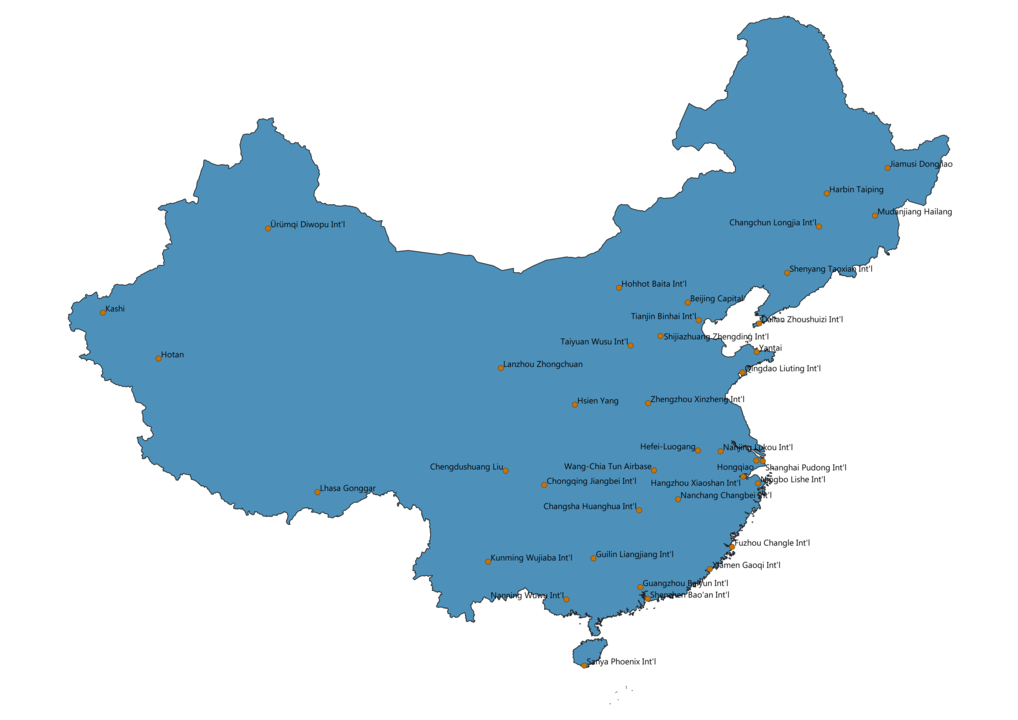
China is home to several major ports that facilitate international shipping. Key ports include:
- Shanghai: As one of the busiest ports in the world, Shanghai offers extensive shipping services and connections to various global destinations.
- Shenzhen: Known for its proximity to manufacturing hubs, Shenzhen is a critical port for exports, particularly for electronics and consumer goods.
- Guangzhou: This port serves as a vital gateway for goods moving in and out of southern China, providing diverse shipping options.
These ports provide a variety of services, including Ocean Freight and air freight, ensuring efficient transport of goods to Iraq.
Iraqi Ports
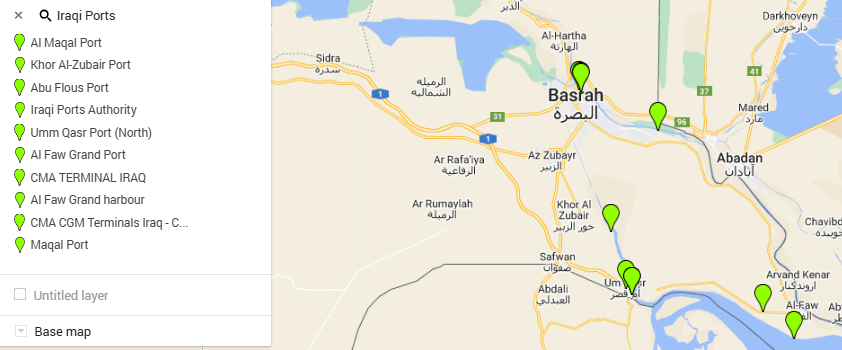
Iraq has several important ports that facilitate the import of goods, including:
- Umm Qasr: This is Iraq’s main deep-water port, handling a significant volume of cargo and serving as a primary entry point for international shipments.
- Basrah: Located on the Shatt al-Arab waterway, Basrah is a significant port for commercial shipping, providing access to various marine transport options.
- Baghdad: Although not directly a port, the capital city is crucial for logistics due to its inland position and connectivity to various transport networks.
Common Shipping Routes and Transit Times
Common shipping routes from China to Iraq typically involve maritime transport, with transit times varying based on the shipping method chosen. For sea freight, the average transit time can range from 30 to 45 days, depending on the specific ports involved and the shipping line used.
For air freight, transit times are significantly shorter, often ranging from 5 to 10 days, making it a suitable option for urgent shipments. Understanding these routes and transit times can help businesses optimize their logistics strategies and meet delivery deadlines more effectively.
Partnering with a reputable agency like Dantful International Logistics can simplify your shipping process, offering comprehensive services tailored to your needs for successful importation from China to Iraq.
Dantful International Logistics Services:
- Dantful Ocean Freight Services
- Air Freight From China
- Amazon FBA Freight Forwarding
- WAREHOUSE Services
- One-Stop Customs Clearance Solution
- Cargo Insurance Services in China
- DDP Shipping Services By Dantful Logistics
- Out of Gauge Cargo Transportation Shipping Services
Documentation and Customs Procedures
Navigating the complexities of documentation and customs procedures is a critical aspect of shipping goods from China to Iraq. Proper management of these procedures ensures the smooth transit of shipments and compliance with legal regulations.
Required Documents for China-Iraq Shipments
When shipping goods from China to Iraq, several essential documents must be prepared and submitted. These include:
- Commercial Invoice: This document provides details about the transaction, including the selling price, quantity of goods, and terms of sale. It is crucial for customs valuation and duties assessment.
- Packing List: This document outlines the contents of each shipment, including item descriptions, quantities, and packaging specifications. It helps customs officials inspect and verify the shipment.
- Bill of Lading (B/L): The B/L serves as a contract of carriage and a receipt for the cargo. It is essential for claiming goods upon arrival and must be correctly filled out to avoid delays.
- Certificate of Origin: This document certifies the country of origin of the goods. It may be required for tariff purposes and compliance with trade agreements.
- Import License: Certain goods may require specific import licenses or permits issued by the Iraqi government. Researching and obtaining necessary licenses in advance will facilitate a smoother customs process.
- Insurance Certificate: Proof of cargo insurance is often necessary to protect against potential losses or damages during transit.
Customs Clearance Process
The customs clearance process involves several steps that need to be meticulously followed to ensure that shipments are processed without delays. The steps typically include:
- Submission of Documentation: Upon arrival in Iraq, customs documentation must be submitted to the relevant authorities. This includes all the required documents mentioned above.
- Customs Inspection: Customs officials will inspect the shipment to verify its contents against the submitted documents. This may involve physical checks or examinations based on risk assessment.
- Duties and Taxes Assessment: Customs will assess applicable import duties and taxes, which must be paid before the release of goods. Understanding the tariff classification and calculating the estimated duties in advance can help avoid unexpected costs.
- Release of Goods: Once all documentation is verified, and duties are paid, customs will release the goods for delivery to the designated location.
Import Regulations and Restrictions in Iraq
Import regulations in Iraq can be complex, and businesses must understand specific restrictions that may apply. Some key considerations include:
- Prohibited Items: Certain goods may be completely prohibited from importation, such as narcotics, weapons, and counterfeit products. Reviewing the list of prohibited items from the Iraqi customs authority is essential.
- Import Tariffs: Goods imported into Iraq are subject to tariffs, which can vary based on the product category. Familiarizing yourself with the applicable tariff rates will aid in budgeting and financial planning.
- Compliance with Standards: Some products may need to comply with specific Iraqi standards and regulations, particularly in sectors like food, pharmaceuticals, and safety equipment. Ensuring compliance can prevent delays or rejections at customs.
Challenges and Solutions in China-Iraq Shipping

Shipping goods from China to Iraq poses several challenges that can impact the efficiency and effectiveness of logistics operations. Understanding these challenges and implementing strategies to mitigate risks is essential for successful shipping.
Political and Economic Instability
Iraq has faced political and economic instability, which can affect the reliability of shipping schedules and trade agreements. Changes in government policies, tariffs, and regulations can create uncertainty for importers.
Solutions:
- Stay Informed: Regularly monitor political and economic developments in Iraq. Engaging with local experts or consulting trade organizations can provide insights into potential impacts on shipping.
- Flexible Contracts: Negotiate flexible shipping contracts that allow for adjustments based on changing circumstances, minimizing potential losses.
Infrastructure Limitations
The infrastructure in Iraq, including transportation networks, ports, and logistics facilities, may be underdeveloped or strained, leading to delays and inefficiencies.
Solutions:
- Partner with Established Agents: Collaborate with local shipping agents who have experience navigating the infrastructure challenges in Iraq. Their knowledge can help optimize routes and ensure timely deliveries.
- Utilize Multimodal Transportation: Implement multimodal transportation strategies that combine various shipping methods to improve efficiency and reliability.
Security Concerns
Security issues in certain regions of Iraq can pose risks to shipments, including theft, vandalism, or damage to cargo.
Solutions:
- Risk Assessment: Conduct thorough risk assessments before shipping. Choose safe routes and avoid high-risk areas when planning logistics.
- Cargo Insurance: Invest in comprehensive cargo insurance to protect shipments against potential risks. Ensure that the insurance policy covers the specific threats faced during transit.
Strategies to Mitigate Risks
To successfully navigate the challenges associated with shipping from China to Iraq, businesses should implement the following risk mitigation strategies:
- Develop Contingency Plans: Create contingency plans for various scenarios, such as delays due to customs issues or unexpected changes in regulations. This proactive approach allows for quick responses to unforeseen challenges.
- Work with Experienced Shipping Agents: Partnering with a reliable and experienced shipping agent, like Dantful International Logistics, can significantly streamline the shipping process. They provide valuable support in documentation, customs clearance, and risk management, ensuring a smoother experience in navigating the complexities of international shipping.
- Continuous Communication: Maintain open lines of communication with suppliers, shipping agents, and local partners. Transparency and collaboration can help address issues promptly and improve overall logistical performance.
By understanding the documentation and customs procedures and being prepared to tackle the challenges of shipping from China to Iraq, businesses can enhance their logistics operations and ensure successful importation of goods.
Technology and Innovation in Shipping Services
The shipping industry is continuously evolving, with technology and innovation playing a pivotal role in enhancing efficiency, transparency, and reliability in logistics operations. Here’s a closer look at some critical technological advancements shaping shipping services today.
Track and Trace Systems
Track and trace systems are essential tools in modern shipping, allowing businesses and customers to monitor the status of shipments in real-time. These systems utilize GPS technology, RFID (Radio Frequency Identification), and IoT (Internet of Things) devices to provide updates on the location and condition of cargo throughout its journey.
Benefits of track and trace systems include:
- Enhanced Visibility: Stakeholders can access real-time data on shipment locations, estimated arrival times, and any delays or issues encountered along the route.
- Improved Accountability: With accurate tracking information, accountability is increased, allowing for prompt responses to any discrepancies or losses.
- Customer Satisfaction: Providing customers with the ability to track their shipments enhances transparency and builds trust, leading to improved customer satisfaction.
Top logistics providers, including Dantful International Logistics, implement advanced track and trace systems to keep clients informed and engaged throughout the shipping process.
Digital Documentation
The transition to digital documentation has revolutionized the shipping industry by streamlining paperwork and reducing the reliance on physical documents. Digital documentation systems enable shippers to create, share, and store important shipping documents electronically.
Key advantages of digital documentation include:
- Efficiency and Speed: Digital documents can be generated and shared instantly, expediting the customs clearance process and reducing delays caused by paperwork.
- Reduced Errors: Automation reduces human error in document preparation, ensuring that all necessary information is accurate and complete.
- Cost Savings: Minimizing the need for physical documentation results in lower printing and storage costs, making it a more sustainable option for businesses.
By adopting digital documentation practices, logistics companies can enhance their operational efficiency and ensure compliance with international trade regulations.
Blockchain in Logistics
Blockchain technology is increasingly being explored in the logistics sector for its potential to enhance security, transparency, and traceability in the supply chain. By creating decentralized and immutable records of transactions, blockchain can revolutionize how goods are tracked and documented.
Benefits of blockchain in logistics include:
- Increased Transparency: All parties involved in a shipping transaction can access the same data in real-time, reducing disputes and enhancing trust among stakeholders.
- Enhanced Security: The decentralized nature of blockchain makes it less vulnerable to fraud and unauthorized tampering, providing a secure environment for sensitive shipping data.
- Streamlined Processes: By automating contract execution through smart contracts, blockchain can reduce the time and costs associated with various logistics processes, from customs clearance to payment settlements.
As the shipping industry continues to innovate, blockchain technology has the potential to transform logistics operations, paving the way for greater efficiency and reliability.
Cost Factors and Pricing Strategies
Understanding the cost factors that influence shipping expenses is crucial for businesses looking to optimize their logistics operations effectively. Here are some key elements of shipping costs and strategies to manage them.
Freight Rates and Surcharges
Freight rates are the primary costs associated with transporting goods, and they can vary significantly based on several factors, including:
- Shipping Method: The choice between ocean freight, air freight, or land transportation impacts rates, with air freight typically being more expensive than sea freight.
- Distance and Route: Longer distances and more complex routes may incur higher costs due to fuel consumption and additional handling.
- Container Size: For sea freight, costs depend on whether you are using FCL (Full Container Load) or LCL (Less than Container Load). FCL is usually more cost-effective for larger shipments, while LCL can be a better option for smaller loads.
In addition to freight rates, businesses should be aware of surcharges that may apply, such as fuel surcharges, port fees, and handling charges. These additional costs can impact the overall shipping budget, so it’s essential to factor them into pricing strategies.
Insurance and Additional Services
While cargo insurance is not a mandatory expense, it is a wise investment to protect goods from potential risks during transit. The cost of insurance typically depends on the value of the goods being shipped and the level of coverage chosen.
Additional services, such as customs clearance, warehouse services, and packaging, may also contribute to overall shipping costs. Understanding these services and their associated fees helps businesses budget effectively and make informed decisions about logistics.
Tips for Cost Optimization
To ensure cost-effective shipping, businesses can adopt several strategies:
- Negotiate Rates: Building strong relationships with shipping agents and carriers can lead to favorable rates and custom deals. Don’t hesitate to negotiate based on volume or regular shipments.
- Consolidate Shipments: Combining smaller shipments into a single larger shipment can reduce transport costs, especially when using LCL services.
- Choose the Right Shipping Method: Assess the urgency and nature of goods to select the most cost-effective shipping method. For non-urgent shipments, ocean freight is often the most economical choice.
- Utilize Technology: Implementing logistics software and tools to analyze shipping patterns can help identify inefficiencies and optimize routes, ultimately reducing costs.
- Plan Ahead: Allowing adequate time for shipment planning can help avoid last-minute decisions that may incur higher costs, such as expedited shipping fees.
Partnering with experienced logistics providers like Dantful International Logistics can further streamline these processes, ensuring a reliable and cost-effective shipping experience.
FAQs
Q1: What are the main shipping methods used for transporting goods from China to Iraq?
A1: The primary shipping methods include sea freight (both Full Container Load and Less than Container Load), air freight, and express courier services. Each method has its advantages depending on the nature of the goods and urgency of delivery.
Q2: How long does it typically take for shipments to arrive from China to Iraq?
A2: Transit times depend on the shipping method. Sea freight generally takes 30 to 45 days, while air freight can take between 5 to 10 days. Express courier services are the fastest but are generally more costly.
Q3: What documentation is required for importing goods into Iraq?
A3: Essential documents include a commercial invoice, packing list, bill of lading, certificate of origin, import license (if applicable), and insurance certificate.
Q4: Are there any specific customs regulations I should be aware of when shipping to Iraq?
A4: Yes, businesses must be aware of prohibited items, import tariffs, and compliance with Iraqi standards. It is advisable to consult with a shipping agent to ensure all regulations are met.
Q5: How can I optimize my shipping costs from China to Iraq?
A5: Strategies include negotiating rates with shipping agents, consolidating shipments, choosing appropriate shipping methods based on urgency, and utilizing technology for logistics planning.
References
- International Maritime Organization (IMO). (2021). Maritime Safety and Security. Retrieved from IMO
- World Trade Organization (WTO). (2021). Trade Policy Review: Iraq. Retrieved from WTO
- The World Bank. (2022). China’s Belt and Road Initiative: A Strategy for Global Trade. Retrieved from World Bank

Young Chiu is a seasoned logistics expert with over 15 years of experience in international freight forwarding and supply chain management. As CEO of Dantful International Logistics, Young is dedicated to providing valuable insights and practical advice to businesses navigating the complexities of global shipping.











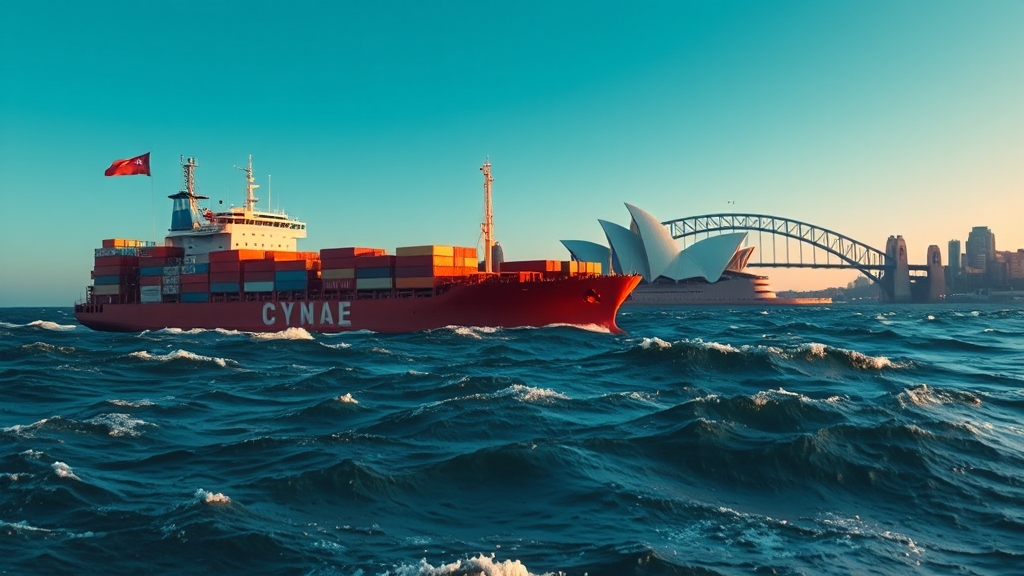
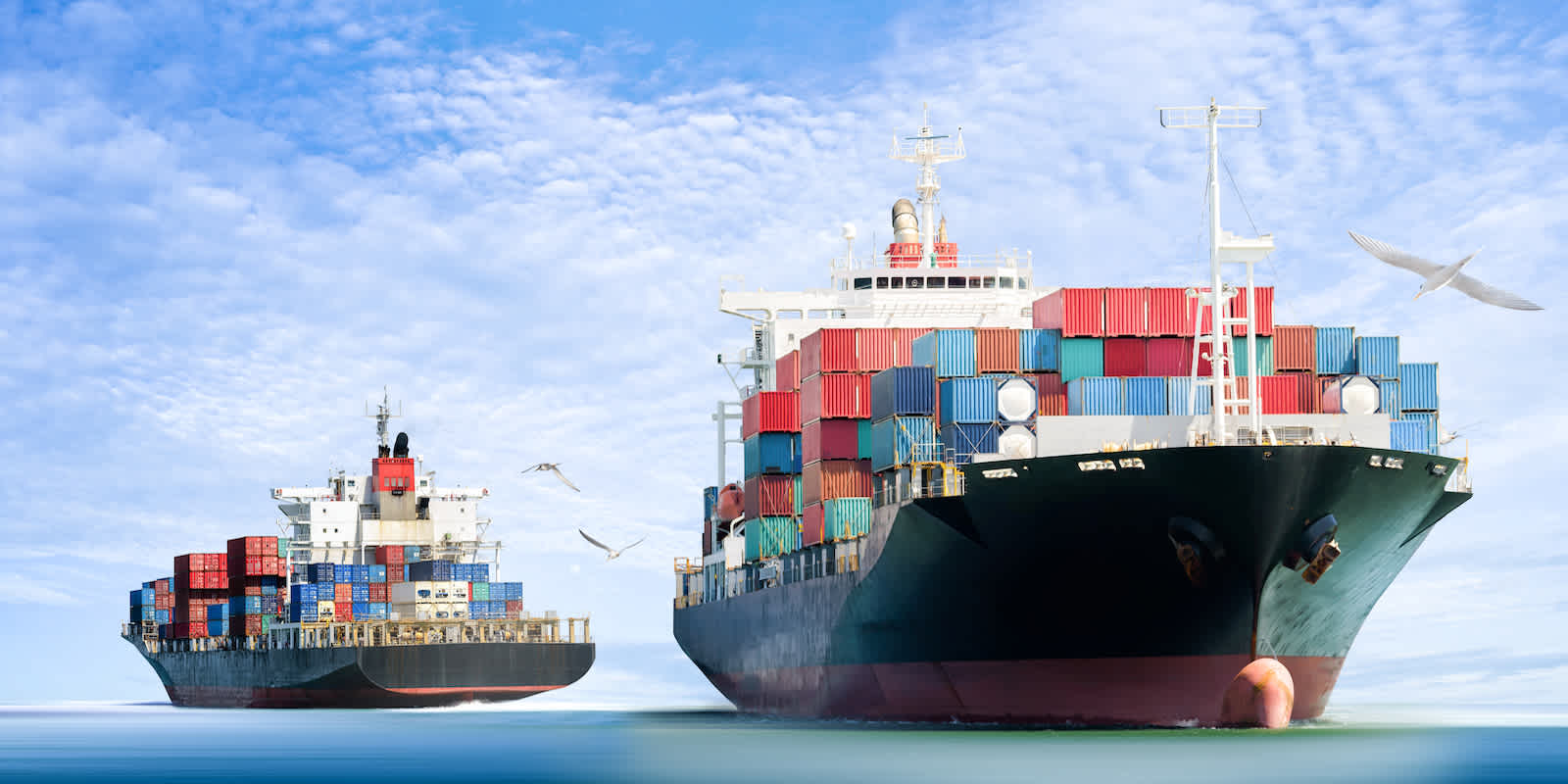
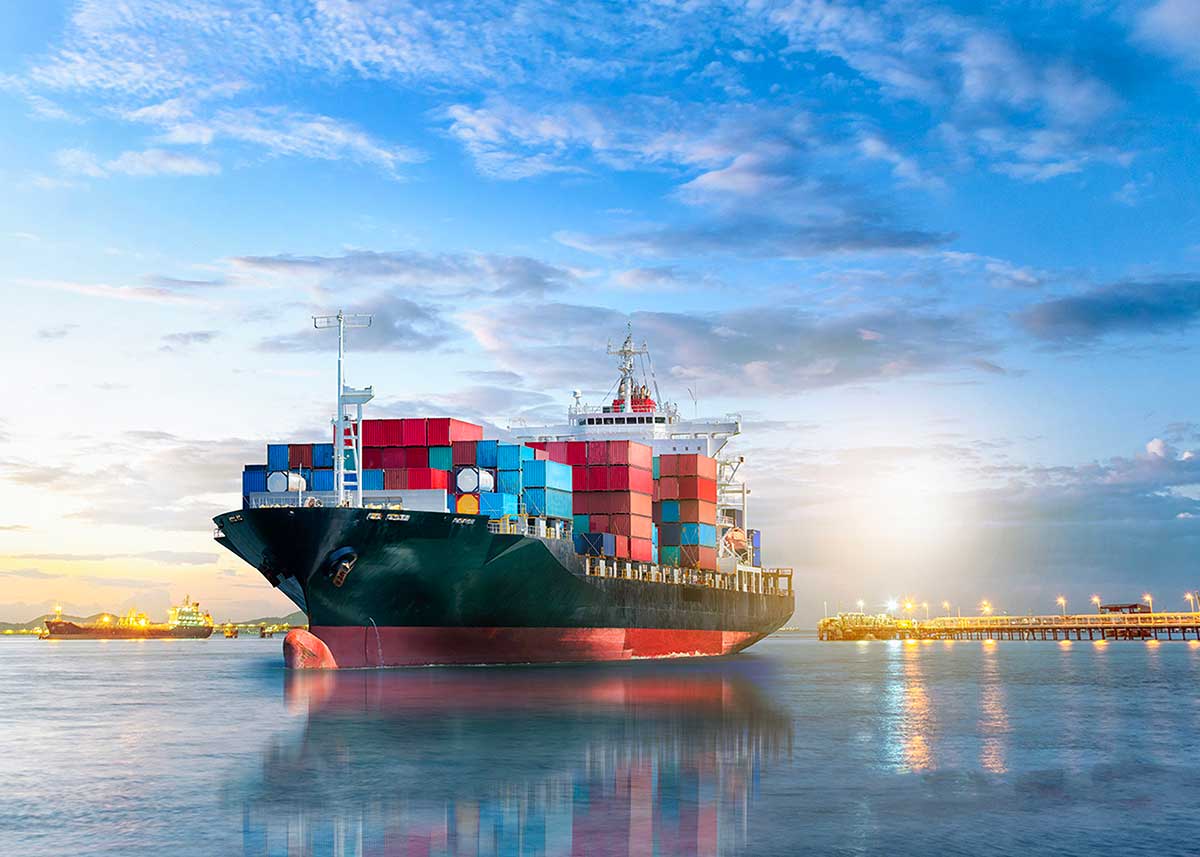






 Afrikaans
Afrikaans Shqip
Shqip አማርኛ
አማርኛ العربية
العربية Հայերեն
Հայերեն Azərbaycan dili
Azərbaycan dili Euskara
Euskara Беларуская мова
Беларуская мова বাংলা
বাংলা Bosanski
Bosanski Български
Български Català
Català Cebuano
Cebuano Chichewa
Chichewa 简体中文
简体中文 繁體中文
繁體中文 Corsu
Corsu Hrvatski
Hrvatski Čeština
Čeština Dansk
Dansk Nederlands
Nederlands English
English Esperanto
Esperanto Eesti
Eesti Filipino
Filipino Suomi
Suomi Français
Français Galego
Galego ქართული
ქართული Deutsch
Deutsch Ελληνικά
Ελληνικά Kreyol ayisyen
Kreyol ayisyen Harshen Hausa
Harshen Hausa Ōlelo Hawaiʻi
Ōlelo Hawaiʻi עִבְרִית
עִבְרִית हिन्दी
हिन्दी Hmong
Hmong Magyar
Magyar Íslenska
Íslenska Igbo
Igbo Bahasa Indonesia
Bahasa Indonesia Gaeilge
Gaeilge Italiano
Italiano 日本語
日本語 Basa Jawa
Basa Jawa ಕನ್ನಡ
ಕನ್ನಡ Қазақ тілі
Қазақ тілі ភាសាខ្មែរ
ភាសាខ្មែរ 한국어
한국어 كوردی
كوردی Кыргызча
Кыргызча ພາສາລາວ
ພາສາລາວ Latin
Latin Latviešu valoda
Latviešu valoda Lietuvių kalba
Lietuvių kalba Lëtzebuergesch
Lëtzebuergesch Македонски јазик
Македонски јазик Malagasy
Malagasy Bahasa Melayu
Bahasa Melayu മലയാളം
മലയാളം Maltese
Maltese Te Reo Māori
Te Reo Māori मराठी
मराठी Монгол
Монгол ဗမာစာ
ဗမာစာ नेपाली
नेपाली Norsk bokmål
Norsk bokmål پښتو
پښتو فارسی
فارسی Polski
Polski Português
Português ਪੰਜਾਬੀ
ਪੰਜਾਬੀ Română
Română Русский
Русский Samoan
Samoan Gàidhlig
Gàidhlig Српски језик
Српски језик Sesotho
Sesotho Shona
Shona سنڌي
سنڌي සිංහල
සිංහල Slovenčina
Slovenčina Slovenščina
Slovenščina Afsoomaali
Afsoomaali Español
Español Basa Sunda
Basa Sunda Kiswahili
Kiswahili Svenska
Svenska Тоҷикӣ
Тоҷикӣ தமிழ்
தமிழ் తెలుగు
తెలుగు ไทย
ไทย Türkçe
Türkçe Українська
Українська اردو
اردو O‘zbekcha
O‘zbekcha Tiếng Việt
Tiếng Việt Cymraeg
Cymraeg יידיש
יידיש Yorùbá
Yorùbá Zulu
Zulu